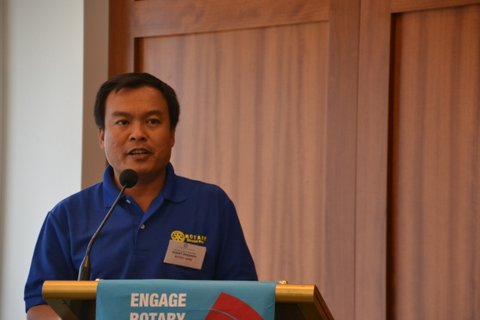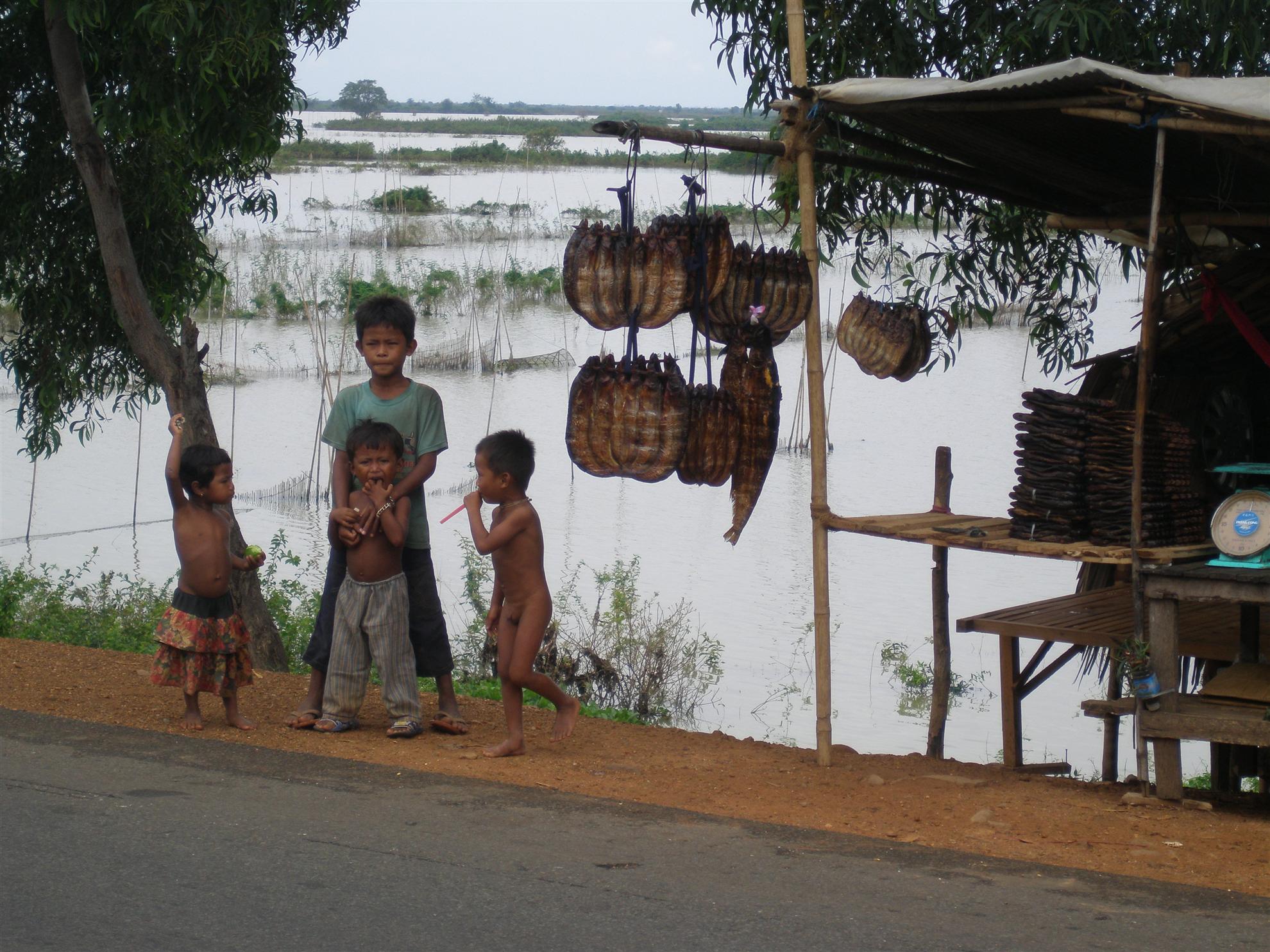World of Difference..Rithy Ann & Bronwyn Stevens
Posted
on Apr 08, 2014


Noel Halford prefaced his introduction to the two speakers from "the World of Difference" on the interaction of Rotary and like organisations in cooperative projects with the disadvantaged regions in Asia, and of course Cambodia has special needs.
We heard that in Cambodia 85% of the population are uneducated farmers. During the 1975-1979 Pol Pot regime educated people were killed or starved. In 2013 70% of the population is under 30 years of age, and still there is a lack of 40-60 year olds. More than one third of Cambodians live below the poverty line, struggling to survive on less than $1 a day. Poverty is especially pervasive in rural areas and among children, who constitute more than half of the country’s population.
First, we were briefly introduced to Bronwyn Stevens (Project Chair for WOD) from Rotary District 9800.
World of Difference is a District 9800 endorsed project that powerfully portrays the work of Rotary in developing countries. Organised by the Rotary Club of Melbourne South, participants are invited to join the group on an tour of regions within developing countries such as Cambodia that require support from Rotary and other volunteers that would like to join the program.
The tour visits well resourced and well run Rotary supported projects. This contrasts with villages and schools in need of Rotary support. During visits it provides donations and volunteering. Each tour builds on the last to provide on going dental hygiene checks, English, knitting and craft classes.
Bronwyn then handed over to the Cambodian national, and a guide for the World of Difference tours, Mr Rithy Ann.
Rithy highlighted the contrasts in his country, the beauty of ancient temples(over 1000) of which Angkor Watt is the most iconic, and the poverty in rural villages. Most impacted are the children of villages which have no clean water, little food and no services. Educational levels and missing generations of teachers means that learning and self help actions are difficult without external support.
Rithy gave us a bleak but yet hopeful story of village life and how small cost projects for example the World of Difference tours with their significant element of humanitarian effort and hands on aid complement the value of very modest donations in providing for example school implements, pieces of infrastructure (e.g. bores, water filters, basic school halls) and food both consumable and regenerative in nature.